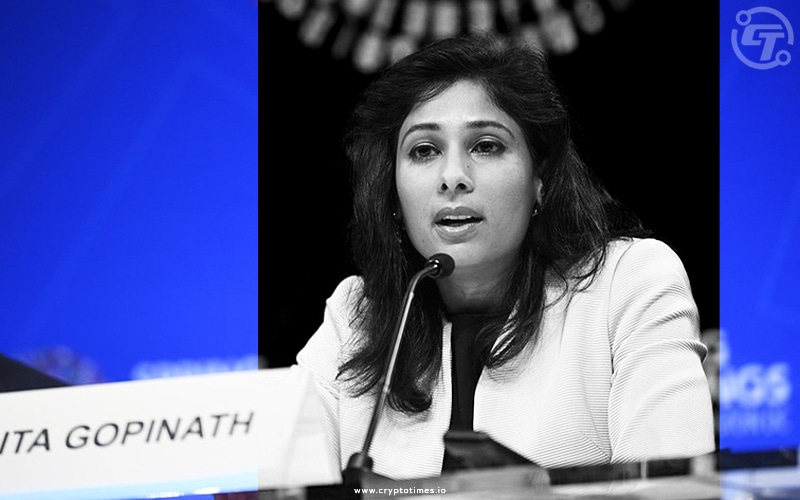The Deputy Managing Director of the International Monetary Fund (IMF), Gita Gopinath, discussed the crucial role of the IMF in defining the global strategy for India’s G20 presidency, which focuses on regulating crypto assets with other important things, in an interview.
In the beginning, Gopinath talked about the importance of this collaboration, which focuses on regulatory aspects and macro-financial implications. For the first time, the Financial Stability Board and IMF have come together to address the regulation of crypto assets competitively, realizing the need for a holistic perspective and identifying the necessary policy action to balance regulation and financial stability.
Regarding monetary matters, a fundamental tenet is to avoid legalizing the use of digital assets like Bitcoin as legal tender because it might affect monetary sovereignty. The guidelines recommend licensing and registration for crypto asset issuers to promote financial stability, with emphasis on handling related activities and risks consistently.
Gopinath said that “Community has come together and agreed on a common set of principles,” but there is still work to be done to develop that regulation. She further added, “So the good thing is there’s no talk of banning crypto I mean the idea that crypto is tough to ban has kind of gone through.”
Gopinath expressed concern over the differing stances that various nations have adopted regarding their policies on crypto assets. They highlighted the broad principles that the majority of nations have agreed upon while acknowledging the need to tailor regulations to particular circumstances.
In response to a question regarding when these principles will be implemented into policy, Gopinath said, “It’s going to be much less of the Wild West with better data and transparency.” Differentiation will depend on whether cryptocurrency assets are used for payments or speculative investments.
Also Read: IMF, FSB Releases Policy on Crypto Risks at India’s Request







